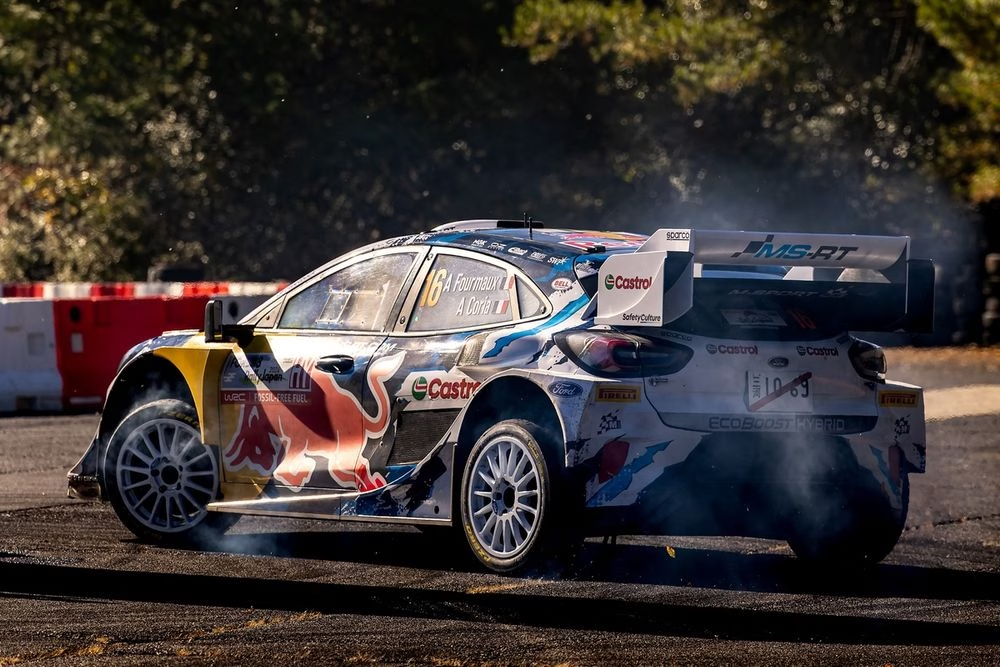The 2027 World Rally Championship regulations are likely to offer manufacturers a range of powertrain options and cars that will be significantly cheaper through a cost cap on components.
The WRC’s 2027 ruleset for the future of Rally1 and Rally2 is expected to be revealed at next month’s World Motor Sport Council, although Motorsport.com understands teams were issued a draft of the proposal at last weekend’s Rally Japan.
It is widely anticipated that the current Rally1 spaceframe chassis, which has increased safety levels and accommodated various car model body shapes since it was launched in 2022, is expected to continue with adaptations. Plans to expand chassis construction out to tuning companies, and not locked to only manufacturers, are being discussed.
While hybrid power has been abandoned for 2025 and 2026 in Rally1, it is expected that manufacturers will be offered flexibility on powertrains for 2027.
It is likely that the internal combustion engine, powered by 100% sustainable fuel, will be the preferred option, but the ability to run full EV and hybrid is set to be offered.
If in the future a multitude of powertrains are selected by manufacturers the performance between the cars will be balanced using a torque meter. This concept is set to be used at next year’s Dakar Rally.
Adrien Fourmaux, Alexandre Coria, M-Sport Ford World Rally Team Ford Puma Rally1
Photo by: M-Sport
“The procedure for 2027 will be different. There will be a core car which will be the base going forward and there will be an opportunity for flexibility among the manufacturers,” FIA road sport director Andrew Wheatley told Motorsport.com.
“One of the core principles that was determined in February and March was going forward we need an element of flexibility so there will be an opportunity for manufacturers to consider full electric, hybrid or ICE.
“However, looking at the future I think it is significantly more likely all manufacturers will move to towards a more traditional powertrain simply because of the commercial opportunity that a simpler car has.
“If somebody comes into the discussion and wants to run full EV there is no problem. What we are seeing in other championships is that the reliability of the torque meter is pretty good and the consistency is very good.
“We will see it in practice in Dakar which is the first event in our department that will be using a torque meter to balance the turbos etcetera,…
Click Here to Read the Full Original Article at Motorsport.com – RALLY – Stories…

